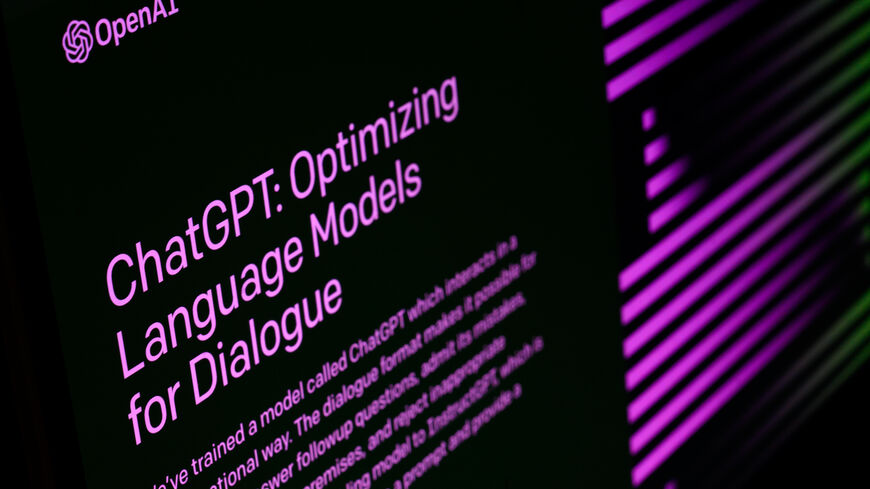The Dubai Electricity and Water Authority (DEWA) announced on Wednesday that it will use the conversational artificial intelligence agent ChatGPT to improve its offerings, claiming to be the first UAE government entity and the first utility company globally to do so.
The electric and water service provider will use the technology released in November last year to support customer and employee services, but did not provide further specifics.
ChatGPT is an AI chatbot created by research laboratory OpenAI, which has advanced conversational abilities that allow human-like exchanges and can interpret nuance to the level of writing speeches and poetry, answering questions, and giving advice.
Saeed Mohammed Al Tayer, managing director and CEO of DEWA, said ChatGPT will contribute to shaping its digital future as the company aims to use more autonomous systems for the purpose of renewable energy and storage.
DEWA wrote that it’s using the conversational tech tool with the support of Microsoft, which announced this week that it will release software to help large companies create their own chatbots similar to ChatGPT, reported CNBC.
One of the most recognized use cases of ChatGPT for businesses is allowing them to develop effective customer relationships without needing to hire a human to answer phones or conduct chat conversations.
Yet for a company like DEWA, this benefit is only the tip of the iceberg, according to Mohammed AlKaff AlHashmi, co-founder and chief business officer of the UAE-based digital financial services nonprofit Haqq Association. He believes it will serve as a window into needed consumer behavior.
“It’s very important for companies like DEWA to acquire real-time data of its users to build forecasting analysis,” he said, pointing to the need for companies to accurately predict how consumers will behave in the future and saying that ChatGPT can help.
In the case of DEWA, user-driven data about how households are consuming water and electricity with such an expansive data set base would be valuable insight, added AlHashmi.
Kurt Muehmel, a strategic advisor at Everyday AI company Dataiku, said that using the AI tool for anything considered a critical function would be unlikely and premature.
“I would advise them to proceed with caution,” he said, because much remains unknown about how these technologies perform.
These current models are very good at producing text, but even though they're correct a lot of the time, they can't be guaranteed to be truthful, he told Al-Monitor.
This is a trait that OpenAI, the company that created the software, acknowledges on the website, explaining in its list of issues that “ChatGPT sometimes writes plausible-sounding but incorrect nonsensical answers,” adding that fixing this issue is a challenge. It still requires constant human oversight.
The US consumer technology media review site CNET discreetly used the natural language software to write dozens of news articles but made “very dumb errors,” Futurism reported in January.
Writing with authority, ChatGPT calculated that a $10,00 deposit with a 3% interest rate would earn $10,300 after the first year, though the correct answer is $300.
In regard to journalism and similar use, these types of technologies have the potential to be biased, according to Muehmel, not due to any fault of the software, but depending on the data programmed into it by its human users.
“So for example, a conservative company is probably going to make sure that its AI chatbot only provides responses on a very specific set of topics and avoids questions it doesn’t want to answer,” he told Al-Monitor, rather than making a response that is potentially controversial.
Another major factor perplexing the technology community and companies looking to use AI such as ChatGPT is the cost, including its developer.
Upon its release, although OpenAI could not quantify the expense of using ChatGPT, OpenAI CEO Sam Altman characterized the expected high price tag online. “The compute costs are eye-watering,” said Altman on Twitter just after the software’s release in December.
Tom Goldstein, an associate professor of AI security and privacy at the University of Maryland, foresees phenomenal investment needed.
“I estimate the cost of running ChatGPT is $100K per day, or $3M per month,” he wrote in a Twitter thread.
I estimate the cost of running ChatGPT is $100K per day, or $3M per month. This is a back-of-the-envelope calculation. I assume nodes are always in use with a batch size of 1. In reality they probably batch during high volume, but have GPUs sitting fallow during low volume.
— Tom Goldstein (@tomgoldsteincs) December 6, 2022
While businesses still need to assess how much they’re willing to spend on the nascent technology, luckily anyone with a personal computer can use ChatGPT for free with OpenAI’s online testing version as it looks for feedback from users about how to improve the groundbreaking tool.


f0eb.jpg)





